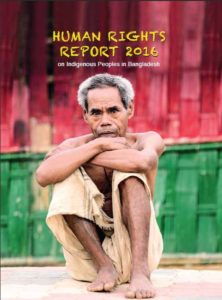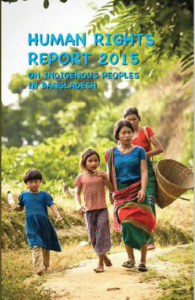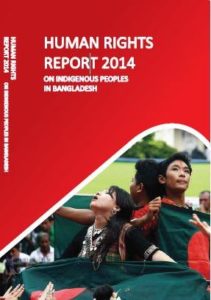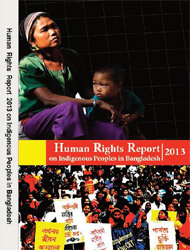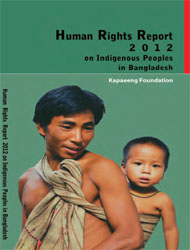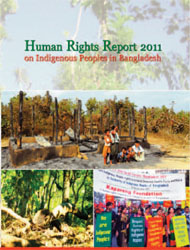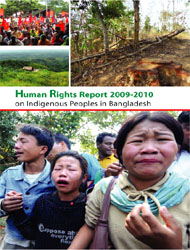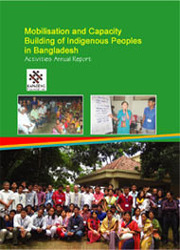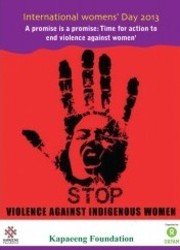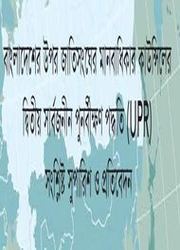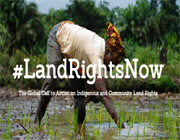BIPF urges govt to enact Bangladesh Indigenous Peoples’ Rights Act ensuring basic rights of indigenous peoples and to declare roadmap for speedy & proper implementation of CHT Accord

Bangladesh Indigenous Peoples Forum (BIPF) urged the government of Bangladesh to enact Bangladesh Indigenous Peoples Rights Act as drafted by Parliamentary Caucus on Indigenous Peoples aiming to ensure political, economic, social, cultural and land rights of indigenous peoples of the country. The BIPF also demanded to declare a timeline (roadmap) for speedy & proper implementation of CHT Accord and to observe the International Day of the World’s Indigenous Peoples officially.
The BIPF organised a press conference at Hotel Sundarban in Dhaka on 5 August 2015 at 11:00 am to announce the programmes marking the 9 August International Day of the World’s Indigenous Peoples. On behalf of the BIPF, its President Mr. Jyotirindra Bodhipriya Larma read out written press statement of the BIPF and replied to the questions of journalists while General Secretary of the BIPF Mr. Sanjeeb Drong conducted the event.
In the written statement, Jyotirindra Bodhipriya Larma said that the overall rights situation of the indigenous peoples in the country is becoming a high concern. The current cases of violence against indigenous peoples is been highlighted afterwards, where he explained that indigenous peoples are deprived of their constitutional, political, economical and land rights. Again, the violence against indigenous women all over the country, mostly ancestral land of indigenous peoples or for racial content is also been discussed in the paper as a consequence of the land grabbing contest in the indigenous residing places. Apart from that he mentioned some cases where indigenous people were suffered or killed over land.
Mr. Larma specified the CHT Accord by saying that no effective initiative for implementation of the unimplemented provisions of the CHT Accord has been taken even after 18 years. The main issues, such as preservation of tribes-inhabited characteristics of the region, devolution of effective authority to the CHT Regional Council and Hill District Councils, resolution of land disputes, demilitarization, rehabilitation of returnee Jumma refugees and Internally Jumma displaced families, rehabilitation of Bengali settlers outside CHT with dignity etc. are yet to be done.
Mr. Larma said that keeping the implementation of the CHT Accord uncertain, the government is chalking up and carrying out anti-accord activities that going against interest of indigenous Jumma people. The policy makers and the ruling class did not want full implementation of the Accord. He alleged that lands of Jumma people was being grabbed in the name of setting up BGB camp, tourist centres by army, reserve forest by forest department, leasing out land for setting horticulture to businessmen, influential bureaucrats and politicians. Government is increasingly toughing the land related problems of CHT area in place of resolving it, he alleged.
He urged the government to form a separate land commission to restitute alienated lands of indigenous peoples of plain lands and to amend contradictory provisions of the CHT Land Disputes Resolution Commission Act 2001 as per the 13-point amendment proposals of CHT Accord Implementation Committee adopted on 20 January 2015, to preserve and protect indigenous peoples’ traditional lands and territories.
Mr. Larma expressed his deepest dissatisfaction saying that indigenous peoples remain almost invisible in the final draft of the outcome document for the UN summit to adopt the post-2015 development agenda containing the 17 Sustainable Development Goals and 169 targets for the post-2015 Development Agenda. He said that during the implementation of the Millennium Development Goals (MDG) in last 15 years, the government of Bangladesh failed to address indigenous peoples’ poverty and basic needs, though Bangladesh is on track or has already achieved 5 of the 8 MDG goals. He called upon the United Nations and Member States including Bangladesh to include indigenous peoples in the Post-2015 development agenda.
Mr. Larma iterated longstanding demand of the indigenous peoples for their constitutional recognition as ‘indigenous peoples.’ Finally Mr. Larma put forwards for following demands-
- The state and all the concerned will have to come forward in establishing the rights and development of livelihood of indigenous peoples;
- Indigenous peoples’ rights will have to be recognized by bringing amendment to the constitution;
- CHT Accord will have to be implemented and to that end, a time-line-based plan or ‘road map’ will have to be declared;
- The UN Declaration on Indigenous Peoples will have to be ratified and implemented;
- ILO Convention No.107 will have to be implemented and No. 169 will have to be ratified;
- Rights of indigenous peoples to their traditional and customary laws will have to be recognized;
- A separate land commission has to be organized to recover the lands of indigenous peoples in plains and to resolute the land disputes and contradictory provisions of the CHT Land Disputes Resolution Commission Act 2001 as per the 13-point amendment proposals have to be amended;
- Indigenous Peoples Rights Act will have to be formulated;
- Land rights of indigenous Khasi peoples in Jhimai punjee and Nahar punjee in Moulvibazar district will have to be ensured, illegal pressures from local administration upon punjee dwellers will have to be stopped and land leases to the tea estate companies will have to be cancelled;
- The 9th August declared by the United Nations, will have to be observed as Indigenous Peoples Day at state level.
Among others, Mr. Pankaj Bhattacharya, President of Oikya Nap; Mr. Syed Abul Maksud, eminent columnist, journalist and research scholar; Numan Ahmed Khan, Executive Director of IED; Professor Mesbah Kamal, teacher of history at the University of Dhaka; Mr. Shakti Pada Tripura, Organising secretary of BIPF et al were present in the press conference. They extended their solidarity to the demands of the indigenous peoples of the press conference.
The BIPF will organise rally and cultural function at Central Saheed Minar on August 9 to mark the International Indigenous Day-2015. Besides, many other organisations would organise discussion, seminar, rally and cultural function from August 6 to 10 in Dhaka.



